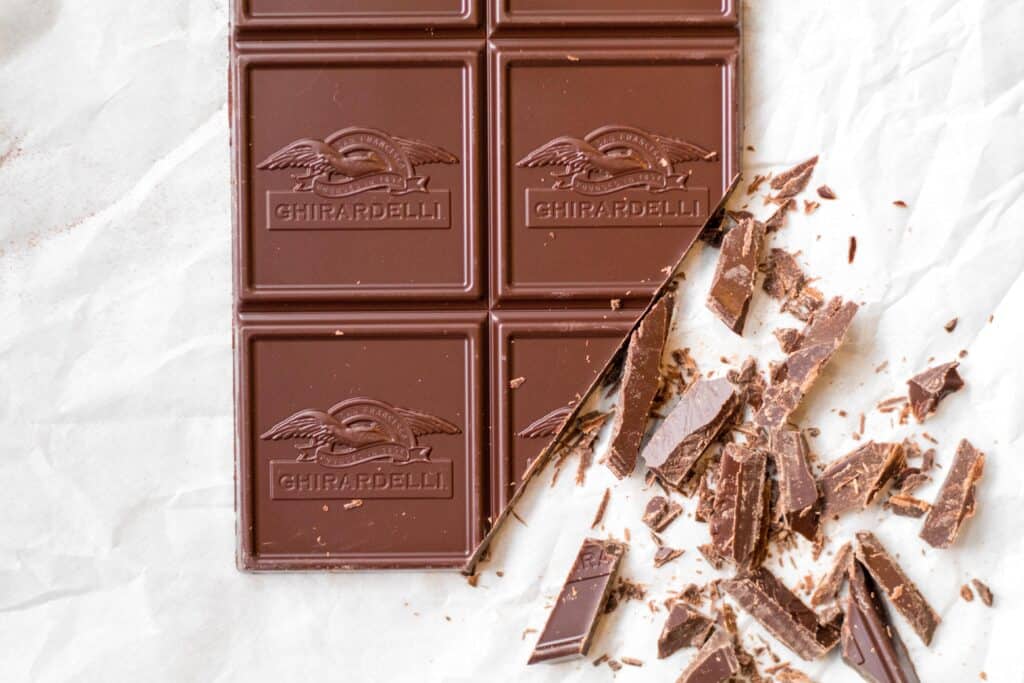For many Americans, reaching for a piece of dark chocolate is a simple pleasure—an afternoon pick-me-up, a reward after a long day, or a small indulgence during late-night cravings. But what if this bittersweet treat could do more than satisfy your sweet tooth? According to a new study from Japan’s Shibaura Institute of Technology, the flavanol compounds found in dark chocolate might briefly sharpen memory and enhance alertness, especially when consumed shortly before learning something new. While the findings are still preliminary, they’re stirring up fresh curiosity among scientists and chocolate lovers alike.
What Are Flavanols, and Why Are They Important?
Flavanols are naturally occurring molecules found in cocoa beans, berries, and other plants. They’re known for their antioxidant properties and have been linked to cardiovascular benefits such as improved blood flow and reduced inflammation. What makes the new research intriguing is that it shifts the conversation from physical health to cognitive function—and introduces a fascinating twist.
For years, scientists believed flavanols exerted their influence only after entering the bloodstream. However, the Japanese research team suggests the real impact may come much earlier, through a sensory signal triggered as soon as the bitter flavor hits nerve pathways in the mouth and gut. Instead of waiting to be digested, the brain reacts almost instantly.
A Rapid Response in the Brain
The study points to the locus coeruleus, a small but powerful region deep inside the brain. Often described as an internal alarm system, it releases noradrenaline, a chemical messenger that enhances attention, alertness, and the ability to store new memories.
In the study’s controlled experiments, mice received flavanols roughly an hour before a memory test. Compared to untreated mice, those that had consumed the compounds showed a 30 percent improvement in recognizing unfamiliar objects. Brain scans later revealed elevated noradrenaline levels in the hippocampus, an area responsible for converting short-term experiences into long-term storage.
That one-hour timing window matters. Neuroscientists have long described a “memory consolidation period” shortly after learning, during which information becomes more stable and less likely to be forgotten. The flavanol response appears to sync perfectly with this window.
Taste as a Biological Signal
What surprised many researchers is how little of the compound actually entered the bloodstream. The mice’s memory boost wasn’t dependent on absorption—it was triggered by taste.
The theory is evolutionary: bitter flavors often signal potential toxins, which historically would have required animals to pay attention to their surroundings. By activating sensory nerves in the tongue and gut, the brain receives a swift message: stay alert, take things seriously, and prepare to learn. In modern life, that same response might simply help someone absorb new information faster.
What Does This Mean for Humans?
As exciting as the idea sounds, scientists are urging caution. The mice were given concentrated doses of flavanols far greater than what you’d find in a regular serving of dark chocolate. Translating that effect to humans remains a challenge, and future clinical trials will have to determine whether two squares of high-cocoa chocolate can produce any noticeable change.
Nutritionists also point out that not all dark chocolate is created equal. Many store-bought varieties include added sugar, milk fats, and flavorings—ingredients that dilute flavanol content. To maximize potential benefits, consumers would need to look for bars labeled 70 percent cocoa or higher, ideally with minimal processing.
The Stress-Stimulation Caveat
Researchers also warn that repeatedly stimulating the locus coeruleus could have side effects. This region of the brain plays a role in the body’s stress response. Excessive activation might contribute to anxiety, poor sleep, or elevated heart rate over time.
Moderation, they stress, remains key. Dark chocolate should remain a treat—not a study supplement taken compulsively.
Where the Research Goes Next
The study opens an interesting frontier. Instead of focusing solely on how nutrients are absorbed into the bloodstream, scientists are beginning to explore how the brain responds to flavor-based sensory triggers. Taste receptors, nerve pathways, and gut-brain signaling are shaping up to be major players in understanding memory, focus, and mood.
In the coming years, researchers may investigate:
Whether similar compounds in other bitter foods create the same effect
How long the memory boost lasts in humans
Whether repeated small doses could support aging brains
How individual genetics affect flavanol sensitivity
As America’s older population grows, interest in memory-supporting strategies continues to rise. From supplements like omega-3s to lifestyle habits including sleep and exercise, consumers are increasingly open to food-based cognitive support.
Should You Eat Dark Chocolate Before Studying?
Right now, the honest answer is: maybe, but don’t expect miracles.
If a small piece of dark chocolate helps you relax, elevates your mood, or makes your study routine feel more enjoyable, there’s little harm in including it occasionally. Even without enhanced memory, cocoa flavanols offer other possible benefits—improved blood flow, decreased inflammation, and modest cardiovascular support.
However, replacing balanced meals with chocolate or consuming excessive sugar won’t help your brain in the long run.
A Delicious Possibility, Not a Prescription
The new findings are a reminder that food and the brain are deeply interconnected—not just through chemistry, but through sensory experience. A bitter taste can wake up ancient alarm systems. A smell can trigger memories. A snack can influence mood.
For now, enjoying a square of dark chocolate before cracking open a textbook might offer a subtle mental edge—or simply make studying a little sweeter. Either way, it’s a reminder of how surprisingly complex, and enjoyable, the brain-food relationship can be.

